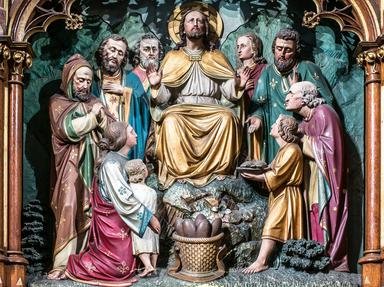
Putting Adam's Descendants in Order Quiz
The Bible gives a genealogy of males in a direct father to son line of descent from Adam for many generations. Starting with a son of Adam and ending with the father of Solomon, place ten of them in chronological order.
An ordering quiz
by misstified.
Estimated time: 4 mins.